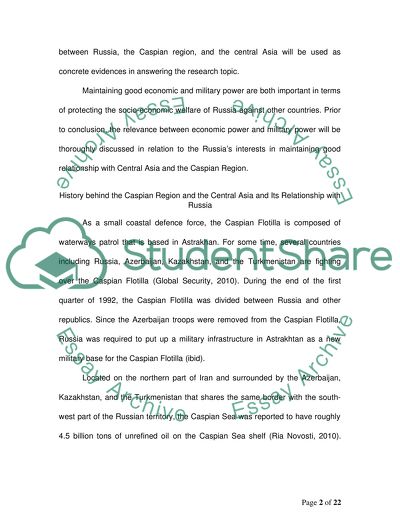Cite this document
(“Russia`s Motives in Relations with Central Asia and the Caspian Region Essay”, n.d.)
Russia`s Motives in Relations with Central Asia and the Caspian Region Essay. Retrieved from https://studentshare.org/politics/1572032-russias-motives-in-relations-with-central-asia-and-the-caspian-region
Russia`s Motives in Relations with Central Asia and the Caspian Region Essay. Retrieved from https://studentshare.org/politics/1572032-russias-motives-in-relations-with-central-asia-and-the-caspian-region
(Russia`s Motives in Relations With Central Asia and the Caspian Region Essay)
Russia`s Motives in Relations With Central Asia and the Caspian Region Essay. https://studentshare.org/politics/1572032-russias-motives-in-relations-with-central-asia-and-the-caspian-region.
Russia`s Motives in Relations With Central Asia and the Caspian Region Essay. https://studentshare.org/politics/1572032-russias-motives-in-relations-with-central-asia-and-the-caspian-region.
“Russia`s Motives in Relations With Central Asia and the Caspian Region Essay”, n.d. https://studentshare.org/politics/1572032-russias-motives-in-relations-with-central-asia-and-the-caspian-region.


